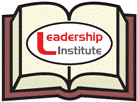
Leadership Institute: Faculty Publications
Document Type
Article
Date of this Version
2003
Abstract
Overclaiming is a concrete operationalization of self-enhancement based on respondents’ ratings of their knowledge of various persons, events, products, and so on. Because 20% of the items are nonexistent, responses can be analyzed with signal detection formulas to index both response bias (over-claiming) and accuracy (knowledge). Study 1 demonstrated convergence of over-claiming with alternative measures of self-enhancement but independence from cognitive ability. In Studies 2–3, the validity of the overclaiming index held even when respondents were (a) warned about the foils or (b) asked to fake good. Study 3 also showed the utility of the over-claiming index for diagnosing faking. In Study 4, the over-claiming technique was applied to the debate over the adaptive value of positive illusions.


Comments
Published in Journal of Personality and Social Psychology 84:4 (2003), pp. 890–904; doi: 10.1037/0022-3514.84.4.890 Copyright © 2003 American Psychological Association. Used by permission. “This article may not exactly replicate the final version published in the APA journal. It is not the copy of record.” http://www.apa.org/journals/jpsp/